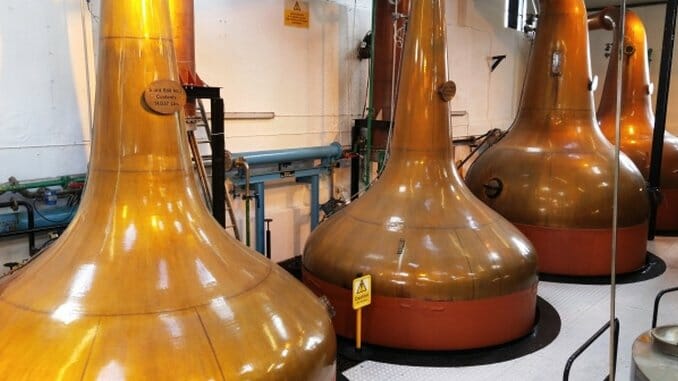Ask the Expert: How is Scotch Whisky Different From Irish Whiskey?

In our new Ask the Expert series, Paste readers chime in with some of their most pressing booze concerns, and we do our best to help you make sense of it all. Resident expert Jake Emen has spent years on the road traveling to distilleries across the country and around the world, and he’s here to help. Want your own question answered? Send a Tweet to him @ManTalkFood using #AskTheExpert.
What’s the difference between Scotch whisky and Irish whiskey? Well, the two most obvious places to start are where they’re from, and the pesky spelling difference in whisky and whiskey.
Scotch is from Scotland, and Irish whiskey is from Ireland. That’s easy, right? For the latter, it’s the whole island, including both the Republic of Ireland and Northern Ireland.
As for the spelling of the word, let’s be clear—it doesn’t really matter. Scotland, Canada, Japan and other emerging world producers default to whisky, with America and Ireland defaulting to whiskey. That said, you’ll find particular brands in those places using the opposite spelling, so it truly doesn’t mean a thing. You can spell it how ya like, while acknowledging that those are the general fault lines of the debate.
Moving onto the stuff that actually matters, let’s look at how Scotch is different from Irish whiskey in terms of production.
In Scotland, whisky made from 100% malted barley is typically double distilled in copper pot stills. When that product comes from a single distillery, it’s known as a single malt. Different varieties of blends may include two or more single malts, or some combination of single malts with single grains.
-

-

-

-

-

-

-

-

-

-

-

-

-

-

-

-

-

-

-

-

-

-

-

-

-

-

-

-

-

-

-

-

-

-

-

-

-

-

-

-








































